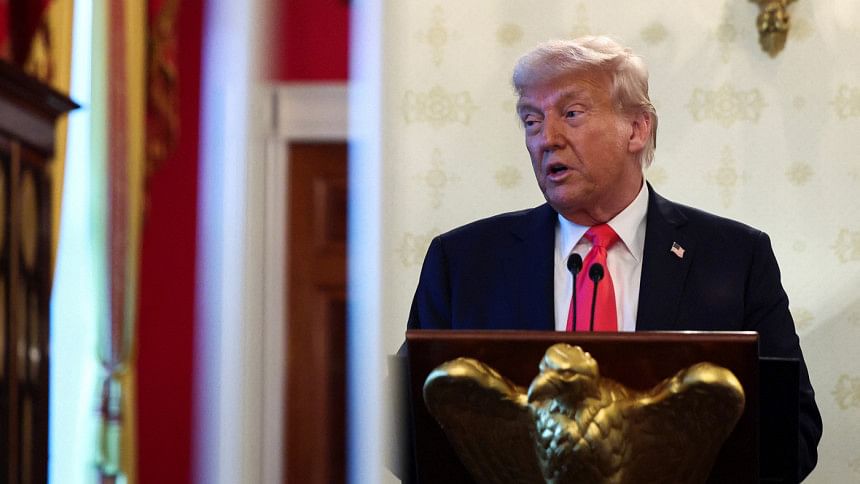Trump includes troop costs in tariff talks

The tens of thousands of US troops stationed in South Korea and Japan appear set to be part of President Donald Trump's tariff negotiations, despite efforts by both countries to separate security talks from trade.
In posts on the Truth Social platform, Trump said defence cost-sharing would be part of "one-stop shopping" negotiations with Seoul, and raised the issue of the defence burden during a visit by Japanese officials to Washington this week.
Japan hosts about 50,000 US troops and South Korea 28,500. Both nations rely on the US nuclear umbrella for protection against China, Russia and North Korea, and are seen as crucial for the US military's ability to project power and influence around the region.
Trump has previously suggested he could withdraw the US forces if the countries don't pay up, and during his first term, demanded billions of dollars more.
On Wednesday, South Korea's first vice foreign minister Kim Hong-kyun told parliament that while Washington had not formally proposed renegotiating their Special Measures Agreement (SMA) under which South Korea supports US troops stationed there, Seoul is preparing for various scenarios.
Finance Minister Choi Sang-mok said this week that cost sharing is not up for review.
Tokyo views the issue of defence spending as separate from tariffs, a Japanese government official told Reuters. "These originally are separate issues," the official said, suggesting defence costs should not be part of the tariff negotiations.
The Pentagon and the State Department referred questions to the White House, which did not respond.
Reopening defence talks is a "deliberate pressure tactic" by Trump, said Danny Russel at the Asia Society Policy Institute.
"Trump has made clear he sees alliance relationships as transactional and is determined to extract an economic payoff commensurate with the value of the US defence umbrella," he said.
Shortly before last year's US election, South Korea and the outgoing administration of then-US President Joe Biden hurried to sign a new, five-year SMA under which Seoul would raise its contribution toward the upkeep of US troops in the country by 8.3 percent to $1.47 billion in the first year, with later increases linked to the consumer price index.
That gamble appears to have failed, however, said one South Korean security official who spoke on condition of anonymity since they were not authorised to discuss the issue.

 For all latest news, follow The Daily Star's Google News channel.
For all latest news, follow The Daily Star's Google News channel. 



Comments